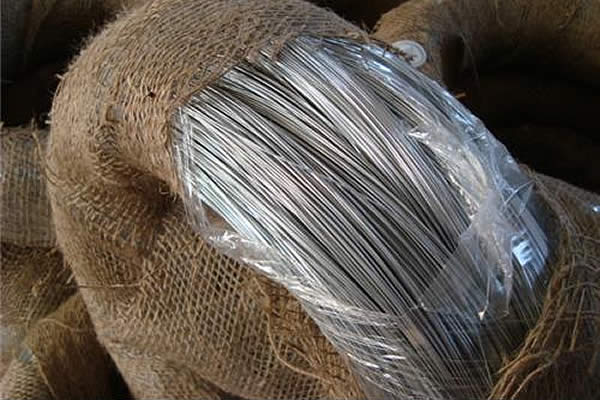 TEL:
+86-13102802206
TEL:
+86-13102802206
 Email:
fencenetting@china.com
Email:
fencenetting@china.com
 Language
Language
 TEL:
+86-13102802206
TEL:
+86-13102802206
 Email:
fencenetting@china.com
Email:
fencenetting@china.com
 Language
Language


Understanding 304% Wire Properties, Applications, and Advantages
304 stainless steel wire is a versatile and widely-used material known for its excellent corrosion resistance, strength, and overall suitability for various applications. It is part of the 300 series of stainless steels, which are austenitic alloys primarily composed of iron, chromium, and nickel. In this article, we will explore the properties of 304 stainless steel wire, its common applications, and the advantages it offers over other materials.
Chemical Composition
304 stainless steel is composed of approximately 18% chromium and 8% nickel, giving it a balanced composition that enhances its mechanical properties and resistance to oxidation. The presence of chromium forms a passive layer of chromium oxide on the surface, which helps prevent rust and corrosion. The nickel content contributes to its toughness and formability, making it an ideal choice for various applications.
Properties of 304 Stainless Steel Wire
1. Corrosion Resistance One of the most significant advantages of 304 stainless steel wire is its exceptional resistance to a wide range of corrosive environments. It can withstand exposure to chemicals, salts, and moist atmospheric conditions, making it suitable for use in marine environments, chemical processing, and food production.
2. High Strength and Ductility 304 wire exhibits excellent tensile strength, enabling it to withstand heavy loads and stresses without breaking. Additionally, it has high ductility, allowing it to be easily drawn into thin wires or formed into intricate shapes without losing its structural integrity.
3. Temperature Resistance This type of stainless steel wire performs well in high-temperature applications, maintaining its strength and resistance to oxidation up to temperatures of 870°C (1600°F) in intermittent service and up to 925°C (1700°F) in continuous service.
4. Ease of Fabrication 304 stainless steel wire can be easily processed using various methods, including welding, machining, and forming. This versatility makes it a go-to material in numerous industries.
Common Applications
304 stainless steel wire is used across a plethora of industries due to its favorable properties
- Construction and Architecture The wire is often utilized in architectural applications for wire mesh, railings, and decorative elements due to its aesthetic appeal and durability.

- Food and Beverage Industry Given its non-reactive nature, 304 stainless steel wire is commonly used in food processing equipment, utensils, and storage containers to ensure the safety and integrity of food products.
- Automotive and Aerospace In these industries, 304 stainless steel wire is used in various components, including springs, brackets, and fasteners, where high strength and resistance to corrosion are critical.
- Medical Devices The biocompatibility and corrosion resistance of 304 wire make it suitable for medical applications, including surgical instruments, implants, and diagnostic devices.
- Electronics The wire's excellent conductivity and resistance to oxidation make it an ideal material for connectors and other electronic components.
Advantages of 304 Stainless Steel Wire
The benefits of using 304 stainless steel wire are manifold
- Longevity Products made from 304 stainless steel are durable and resilient, often outlasting those made from alternative materials. This longevity translates to lower replacement and maintenance costs over time.
- Hygienic Properties The non-porous surface of 304 stainless steel prevents the harboring of bacteria and contaminants, making it a hygienic choice for food and medical applications.
- Aesthetic Qualities 304 stainless steel wire has a bright, polished finish that is not only visually appealing but also contributes to its resistance to staining and tarnishing.
- Recyclability Being a steel alloy, 304 stainless steel wire is fully recyclable, making it an environmentally friendly choice for manufacturers and consumers alike.
Conclusion
In summary, 304 stainless steel wire is a highly functional and reliable material that finds applications in numerous industries due to its outstanding properties, including corrosion resistance, strength, and versatility. As industries continue to evolve and seek materials that offer longevity and performance, 304 stainless steel wire remains an essential component in modern manufacturing and construction. Its myriad of uses and clear advantages solidify its status as a preferred choice for engineers and designers around the world.